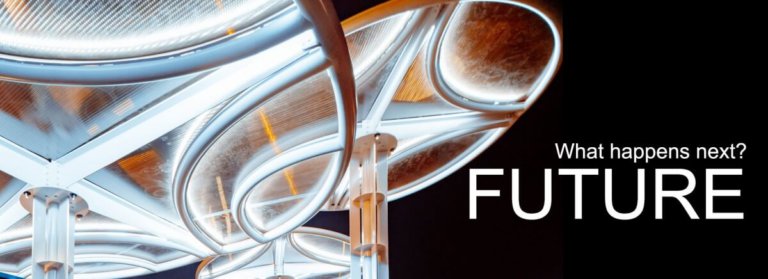
Can we learn how to thrive in a transforming world? That’s the question educators around the world are asking as humanity stands on the precipice of the Fourth Industrial Revolution. Described by the World Economic Forum as a range of “new technologies that are fusing the physical, digital and biological worlds, ”it is a movement that will jolt all disciplines, economies and industries.” Everything that we know about what it means to be human will be challenged.
At the University of the Witwatersrand, the answer is that, yes, we can learn to thrive. Higher education can and must prepare today’s generation for the challenges of tomorrow.
From self-driving cars to robots taking over our jobs, the 4th IR will change how we live, work and relate to one another. A PwC report found that more than one-third of workers are worried about automation putting jobs at risk. Nearly two-thirds believe, “few people will have stable, long-term employment in the future”. A McKinsey report estimates that by 2030, the time spent on technological skills will grow at the most rapid rate – 50 percent in the United States and by 41 percent in Europe – as companies deploy automation, robotics, artificial intelligence, advanced analytics, and other new technologies.
As in all times of change, this technology revolution will require universities to push the boundaries of teaching and learning.
The aim is clear. To produce graduates with a narrow range of skills will no longer suffice. Instead, agility, adaptability and curiosity must be embedded in each student by the time they receive their degrees.
It’s an ambitious goal, but one of South Africa’s leading universities is putting full force into teaching, research and learning.
“We have invested R500 million in an ICT upgrade, adopted a new cutting edge research strategy, and introduced innovative blended learning options, including a digital campus, online courses and high tech classrooms,” said Vice-Chancellor Professor Adam Habib.
Advanced infrastructure represents only one facet of this South African university’s strategy. Delivering future generations with the right set of skills and knowledge is another core component. These include: critical and creative thinking, the ability to work collaboratively with other people, and, above all, the ability to be a life-long learner.
 One of the many ways Wits University does this is through the innovative teaching of the humanities, giving students a critical orientation to explore complex human-to-human and human-to-robotic relations.
One of the many ways Wits University does this is through the innovative teaching of the humanities, giving students a critical orientation to explore complex human-to-human and human-to-robotic relations.
The usual study of humanities trains students in critical thinking, debating and creative problem solving. Taking this further, Wits also offers a joint undergraduate programme that meshes engineering with the arts to develop a programme in game design and digital arts. At the postgraduate level, students can also enrol for a programme on e-Science or Data Science as well as an MSc in Robotics or Artificial Intelligence.
Writing in The Conversation, Professor and Dean of Humanities Ruksana Osman said:
“Students are exposed to various interdisciplinary approaches like statistical computing and modelling, data visualisation, text analysis, and geographical information systems. Master of Arts students take courses in data privacy and ethics alongside MSc students. This course is team-taught and students engage with complex problems from two or more science and humanities disciplines.”
Another distinct way universities shape the future is by being testbeds for innovation. The more groundbreaking research that takes place in a campus, the likelier it is that it will inform the curriculum and connect students to the exciting developments taking place.
An example of practical innovation methods is how Wits University is in partnership with Telkom and two other universities to explore how the Fourth Industrial Revolution could shape the future of South Africa.
Other initiatives include the RAIL Lab (a research group focusing on AI, machine learning, and robotics), the LINK Centre (a research and training centre for emerging telecommunication technology), the Tshimologong Digital Innovation Precinct (an e-skills, software innovation and digital knowledge hub), Gauteng City-Region Observatory (data collection and analysis for urban planning) and many more. Imagine the types of industry-based learning opportunities students here will have access to.
“We need to train scholars to deal with the challenges of the 21st Century, some which we may not yet have encountered,” says Professor Adam Habib.
“We need to work across sectors to develop the technology required for us to leapfrog across eons of poverty, unemployment and inequality, and in so doing to create a new world order that prioritises humanity before profits and power. We can’t stop the change, any more than we can stop the sun from setting, so let’s embrace it.”
Follow Wits on Facebook, Twitter, YouTube and LinkedIn
Liked this? Then you’ll love…
The University of Witwatersrand breathes innovation into Johannesburg







